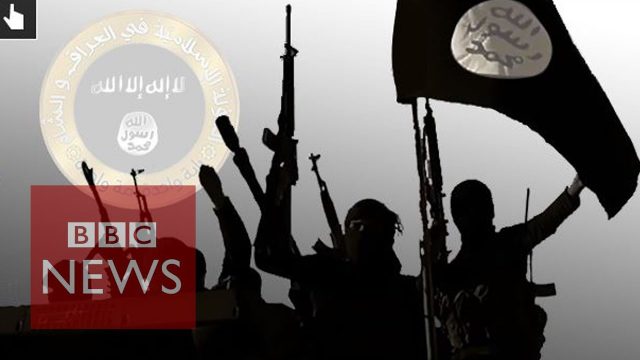The BBC’s Pro-Islamic Stance

Back in 2018, the Clarion Project published an article “First-Hand Report: Why is the World Ignoring This Genocide?” It was based on my first-hand account after my visit to northern Nigeria where Christians are being annihilated by Islamists. As per the subtitle, the slaughter of these people hardly ever gets mentioned by the mainstream media. While the plight of Nigerian Christians continues for the most par to go unheard, the same can be said of Christians and other religious minorities in Iraq.
This July the British Broadcasting Corporation (BBC) News produced a documentary mini-series “Once Upon a Time in Iraq.” Directed by British filmmaker James Bluemel, it is supposed to offer an in-depth look at lives devastated by the U.S. invasion in 2003, the post-Saddam Hussein era and ISIS. However, as tends to be common with giant media communications, the BBC production omitted the plight of religious minorities: Christians, Yazidis and others.
In an August 20 open letter to the BBC, Chaldean Catholic Archbishop Bashar Warda of Erbil in northern Iraq accused the BBC of overlooking the plight of persecuted Christians and other religious minorities. He said the omissions, especially as the U.S. government had declared the persecuted minorities to be victims of genocide by the Islamic State, was “both wounding and damaging.”
“It is wounding because I feel it is tantamount to showing we do not matter and should have no voice,” Archbishop Warda wrote. “Those like ISIS, who have persecuted us, have consistently sought to deny us a voice…. How can this be? Had we not suffered the war and its aftermath just like our Muslim brothers and sisters? Do you understand the persecution we have suffered in our homeland? And that Christians have existed in this land for 2,000 years, the Mandaeans and Yazidis for even longer?”
John Neill, a volunteer aid worker for the Chaldean Archdiocese of Erbil and English professor at the Catholic University of Erbil, noted that not only was there “no mention of the Yazidis in the whole series” but that it also ignored the presence of Iranian militias, which are “causing a huge issue of security, resulting in the minorities fleeing for the diaspora.”
Having visited the war-torn town of Mosul in November 2018 — one of the first regions of the world where Christianity embed itself — I could personally testify to the Iranian-backed Shi‘ite militias that police practically every village in the Nineveh sector. They have appropriated for themselves the places vacated by Christians and other religious minorities, which allows them to impose their Islamic law and culture. They also try to shortcut them of government funding for the reconstruction of houses and employment opportunities.
Murad Ismael, a Yazidi activist and former director of the Yazda Organization — a multi-national Yazidi global organization established in the aftermath of the Yazidi Genocide in 2014 — said the BBC program’s omission of the “Yazidis, Christians, Kakais and others is a false representation of Iraq.”
This is not the first time the BBC has been criticized for biased reporting favoring Islam over other religious. As early as 2008, Hindu and Sikh leaders accused the Britsh Broadcasting Corporation of pandering to Britain’s Muslim community by making a disproportionate number of programs on Islam at the expense of covering other Asian religions.
According to Don Maclean, former BBC Radio 2 host, the BBC is “keen on Islam,” producing programs which attack churches in its secularist campaign “to get rid of Christianity.” In 2011, Senior BBC journalist Peter Sissons, one the United Kingdom’s most senior and respected broadcasters, condemned the BBC’s pro-Muslim and anti-Christian bias in his memoirs, When One Door Closes.
In 2016, The Voice for Justice UK likewise criticized the BBC saying: “It’s scandalous that someone displaying such clear pro-Islamic bias and contempt for Christianity should be BBC’s Head of Religion and Ethics.” While the BBC denied this, it nevertheless concluded that Christianity was too prominent on their network.
We should not be surprised at the BBC’s Once Upon a Time in Iraq omitting the suffering of Christians, Yazidis and other non-Muslims. In 2019, it reported that the Christian population dropped from 1.5 million before the 2003 U.S. invasion to less than 120,000. Yet it refused to admit the ultimate cause — the pro-Islamic movement to impose the sharia — let alone that such a demographic drop was still was not enough to be classified as genocide by the BBC.
__________________________________________________

Mario Alexis Portella is a priest of the Cathedral of Santa Maria del Fiore and Chancellor of the Archdiocese of Florence, Italy. He has a doctorate in canon law and civil law from the Pontifical Lateran University in Rome; he also holds a M. A. in Medieval History from Fordham University, as well as a B.A. in Government & Politics from St. John’s University. He is also author of Islam: Religion of Peace? – The Violation of Natural Rights and Western Cover-Up. Book available on Amazon, Barnes & Noble or WestBow Press.






Recent Comments